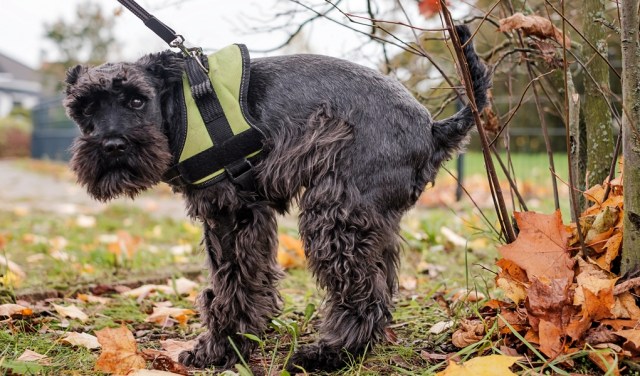7 Tips On How To Firm Up Dog Stool
Loose stool, commonly referred to as diarrhea, is one of the most common health problems in dogs. It’s safe to say that your dog will suffer from diarrhea at some point, and if you’re reading this article, that time is probably right now. These tips and home remedies for how to firm up dog stool can be used if the case of diarrhea is mild and not accompanied by any other symptoms.
If your dog has loose stool, in most cases it’s likely nothing serious according to vets. He probably just ate something that didn’t agree with his digestive system. It may also be a symptom of an allergic reaction to food or food items, medications like antibiotics, the environment, bacteria, or maybe even just a sign that he’s a little stressed out.
Diarrhea is one of the body’s ways of removing toxins, but it can also be a sign of a more serious health condition. If this is the case, the condition will be prolonged and soft stool won’t be the only symptom that you’ll notice. Other symptoms are rare, but be on the lookout for:
- fever
- bloating
- bloody stool
- mucus in the stool
- vomiting
If you notice that your dog’s bout of diarrhea is accompanied with any of these symptoms, call your veterinarian immediately. You should also check in with your vet if your dog has diarrhea that lasts for more than 48 hours. A prolonged case of diarrhea can lead to dehydration or other more serious problems.
7 Tips On How To Firm Up Dog Stool
 Difference Between Soft Stools and Diarrhea in Dogs
Difference Between Soft Stools and Diarrhea in Dogs
Most people use the term diarrhea when referring to soft stool. Believe it or not, there is a difference between the two. To put it simply, soft stools are formed bulky and can be picked up.
Diarrhea has a more liquid consistency and it almost seems like water, without any form. Diarrhea is impossible to pick up. Diarrhea may indicate a health problem or that your pet ate something harmful or toxic. If it lasts for more than a couple of days, the dog needs to see a veterinarian.
Unlike diarrhea, soft stools are rarely a health concern. Instead, they are usually indicative of a poor quality diet, feeding foods to which your dog is intolerant or a lack of fiber in the diet.
If soft stools last for more than a few days, it could mean that a dietary change is necessary. However, it could also be a symptom of a recent dietary change that you’ve already made, especially when a dog’s food is changed suddenly.
The first step to firming up your dog’s stools is to make dietary changes. Here are my seven tips on how to. firm up dog stool without seeking veterinary treatment.
1. Higher Quality Diet
A high-quality diet doesn’t always mean expensive, even if many top rated dog foods do cost more. It’s about making a correct choice for your dog’s individual nutritional needs.
Choose dog foods that list meat as the first ingredient, and ensure that it’s not meat derivatives, meat by-products, etc… Lowering the fat content of your pet’s diet will also help to firm up a dog’s stool.
Choose white meats like chicken, turkey, rabbit or even white fish, as they contain less fat than red meats. Also, pick dog foods with limited ingredients, because they’re likely to contain fewer irritants, preservatives or processed foods.
Other ingredients in quality dog foods that will help to firm up a dog’s stool include rice, oats, barley and wheat. Avoid foods with soy or ingredients made from soybeans.
2. Lower Fat Content of Diet
As I mentioned, don’t feed your dog high-fat foods. Most commercial pet food products contain a limited amount of fat. It’s important to keep “people food” snacks to a minimum. If you’re going to give your pet whole food snacks, stick to healthy fruits and vegetables that offer a nutritional boost with little-to-no fat.
Foods fried in oil, for example, are hard to digest. They can form a layer in your dog’s intestine that leads to watery or soft stools.
SIMILAR: Top 7 Best Dog Foods for Firm Stools
 3. NO Lactose
3. NO Lactose
Most dogs do not digest cow’s milk very well. Their bodies cannot break down the lactose the same way that a human’s body does. Undigested milk sugars draw water from a dog’s intestines and lead to soft stools.
Avoid giving your dog milk or dairy products if possible. Some homemade dog food recipes contain small amounts of milk or yogurt. Usually these small amounts won’t cause soft stool, but if your dog already has soft stool or diarrhea, it’s best to avoid dairy products all together.
4. Only Feed Dry Kibble
Obviously, canned dog foods have a much higher water content than dry kibble. If your dog is on a wet food diet, transition him to dry kibble. Dry food can reduce the volume of a dog’s stool and make it firmer.
Make the switch to the new type of diet gradually, slowly adding new foods into your dog’s existing diet over the course of 5-6 days. The flora and fauna in your pet’s gut will have a chance to adapt to the new diet, so you won’t upset Fido’s stomach.
5. Add More Fiber
Fiber soaks up fluid and can help with firming up soft stools in dogs, or even diarrhea. It is also a bulking agent, so your dog will feel full for longer period of time. You do need to be careful when adding extra fiber to a dog’s diet, because too much fiber can upset their stomach.
For commercial foods, choose brands that have a crude fiber content of around 10%. You can also add the fiber through natural foods, such as including oats, pumpkin or wheat bran in your pet’s meals.
One teaspoon per 20 pounds of body weight is a good start. You can increase this amount a little bit once your dog gets used to it. You can also give your pup raw fruit or vegetables to increase fiber intake. Some homemade meals are higher in fiber than others; you can try this recipe or this one as long as your veterinarian approves.
You can also find fiber supplements at your local pet store or you can ask your vet for a recommendation. These supplements come in supplement form or a powder that can be sprinkled over your dog’s regular meals.
6. Add Pre- and Probiotics
Dogs have good bacteria in their gut that aids in digestion. Lower quality diets can lead to an overgrowth of “bad” bacteria, which can impact the natural balance of bacteria in a dog’s gut. If this is the case, supplementing with “good” bacteria can regulate the imbalance and improve your dog’s digestion and firm up bowel movements.
Dogs don’t have the same gut fauna as humans, so giving them human probiotics will not help and can even be harmful, and cause diarrhea. Only use probiotiocs made specifically for dogs. These probiotics usually come in capsule form.
7. Reduce Stress
Like humans, some dogs experience digestive problems when they are stressed out. If your dog has soft stools often and you’re sure it’s not a dietary issue, it may be caused by mental stress or anxiety.
There’s a large number of things that can cause stress in dogs, such as moving into a new house, radical changes in their schedule and routine, bringing home a new pet or baby and even just a visit from a new person.
If the stressor can be removed (at least temporarily), you’ll know whether or not it’s stress that’s causing soft stools in your pet. If stress is causing your dog’s soft stools, a bland homemade diet like chicken and white rice can be helpful while you’re figuring things out.
READ NEXT: 10 Ways To Help A Dog With An Upset Stomach
The post 7 Tips On How To Firm Up Dog Stool appeared first on Top Dog Tips.





